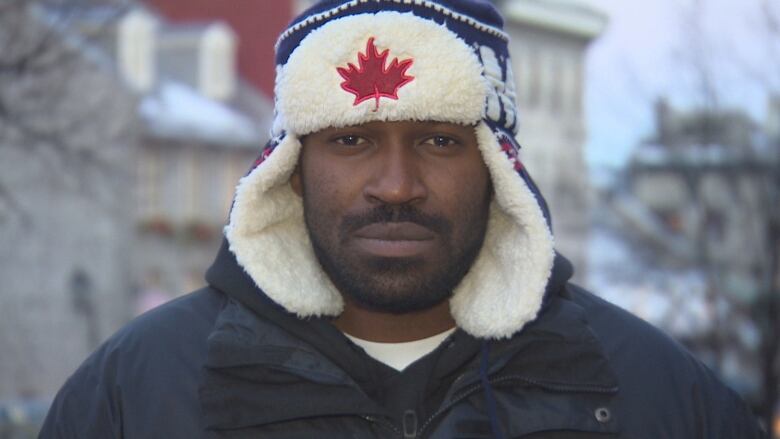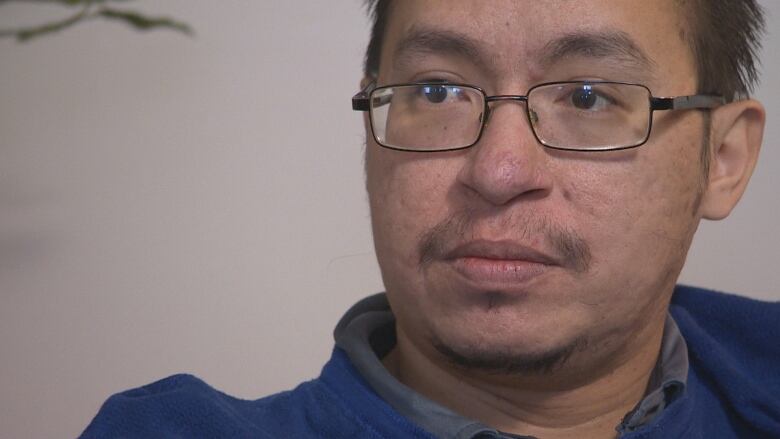'Shopping while black': Marketplace finds some shoppers targeted by retailers because of race
Monitoring shoppers based on the colour of their skin violates human rights codes, but it does happen

It's called "shopping while black." When the colour of your skin can get you increased attention from a store's security guards. And it seems to happen every day.
Consumer racial profiling is a violation of provincial human rights codes, but some security guards admit it happens, a CBC Marketplace investigation reveals.
When an employee asked Mary McCarthy to open her backpack in a Shoppers Drug Mart in Toronto in 2011, it took her a moment to understand why. And then she knew.
"I realized I was being accused of being a thief, I was being accused of stealing," says McCarthy, who is from Fredericton.
"I was a 55-year-old, middle-aged black woman and I didn't deserve that treatment."
In a special months-long investigation, Marketplace looked at how race and culture influence how companies treat shoppers, apartment-hunters and job-seekers across Canada.

Some shoppers followed
A 2013 report for Nova Scotia's Consumer Racial Profiling Project found major differences in how people are treated based on the colour of their skin.
Almost three-quarters of aboriginal respondents reported being followed by store staff, while 62.7 per cent of black Canadians reported being followed while shopping. Just 23.6 per cent of white respondents reported that they had experienced being followed.
- Watch a special, one-hour Marketplace report, Are we racist?, this Friday on CBC Television at 8 p.m. (8:30 p.m. NT) or online.
- Visit CBCNews.ca at 11:30 a.m. on Friday for an online discussion on when to intervene when you see discrimination.
CBC Marketplace tested consumer-based racial profiling in major chains across Canada, documenting how three male shoppers of different racial backgrounds one white, one black and one aboriginal were treated in 15 stores across five cities.
All three wore similar clothing, carried almost identical bags and followed specific instructions: they all acted in the same manner and visited the same aisles.
While most locations treated the three men the same, at other locations, they got very different levels of attention.

Mark Simms, a Jamaican-Canadian, was offered help three times and then followed around the store while shopping at a Best Buy location in Fredericton. The white shopper was offered help once and then left to browse.
A security expert who works for several large retailers -- and who asked to remain anonymous for fear of losing his job -- watched the hidden camera footage. He told Marketplace this technique is frequently used to monitor shoppers identified as suspicious in order to let them know they're being watched.
In a Shoppers Drug Mart in Regina, Rory McCusker, who is white, noticed he was watched by an employee.
McCusker says he was surprised by the attention. "It was a little weird because I've never been followed in a store before."
But when aboriginal shopper Leeland Delorme entered the same store, he was followed by multiple staff members and was tracked as he moved from aisle to aisle.
"They pretended to be scanning things and then just looking, glancing over," he says. "It could not have been more obvious."
Delorme says this type of experience has happened to him before. "This is exactly what I expect from this city," he says. "I'm sorry to say I am not shocked at all. But it still pisses me off."

Shoppers Drug Mart says it takes these allegations "very seriously."
"We are currently looking into the footage of the alleged incident that took place in the Regina store location and will take appropriate action, if necessary," a spokesperson wrote to Marketplace in an email.
Best Buy says it doesn't tolerate discrimination. "These allegations go against everything we expect from our employees and everything we stand for as a company," the company wrote in an email.
'It does happen'
Even though it's against the law, racial profiling by security guards does happen, one current security consultant told Marketplace.
"We'd have a different code name for certain different people, of different ethnic backgrounds," he says. "When certain ethnic backgrounds or a black minority would come in, that code name would be called out on the radio."
When Tomee Sojourner was a security guard, she remembers being told by a site supervisor to follow a group of black youths.

"What caught me off-guard was I was a black youth in my 20s. He was telling me to basically follow myself," she says.
Sojourner, who is now a Master of Law candidate at York University's Osgoode Law School, last week presented a report on consumer racial profiling to the Ontario Human Rights Commission. The organization is looking to develop a new policy on the subject.
"Most retailers won't acknowledge it, so part of getting them to even hear these recommendations is to talk about it in a language that they understand," she says.
Sojourner is currently working on related training for security guards and businesses.
'I'm not going to allow this'
According to the Ontario Human Rights Code, "every person has a right to equal treatment with respect to services, goods and facilities, without discrimination because of race."
Consumer racial profiling is discrimination, even if it's sometimes difficult to prove.
When Mary McCarthy refused to open her knapsack for security guards at Shoppers Drug Mart, the staff proceeded to open and inspect the knapsack anyway. She decided to fight back.
"I thought no, I'm not going to allow this to be pushed over," says McCarthy.
She took Shoppers to the Human Rights Tribunal of Ontario, where she argued she was targeted because she is black. The tribunal agreed, ruling that "race and colour were a significant factor in how the employee and the store treated her."
The tribunal ordered Shoppers to pay McCarthy $8,000.
Sojourner encourages others to speak up, too, when they encounter consumer profiling.
"Most people don't know what they can do," says Sojourner, noting you can get help.
She recommends people contact their province's human rights body for advice and to find out how to take action.
Based on a Marketplace investigation by Ronna Syed, Janet Thomson, Anu Singh, Lindsay Sample, Asha Tomlinson, David Common and Connie Walker












_(720p).jpg)


 OFFICIAL HD MUSIC VIDEO.jpg)
.jpg)



























































































